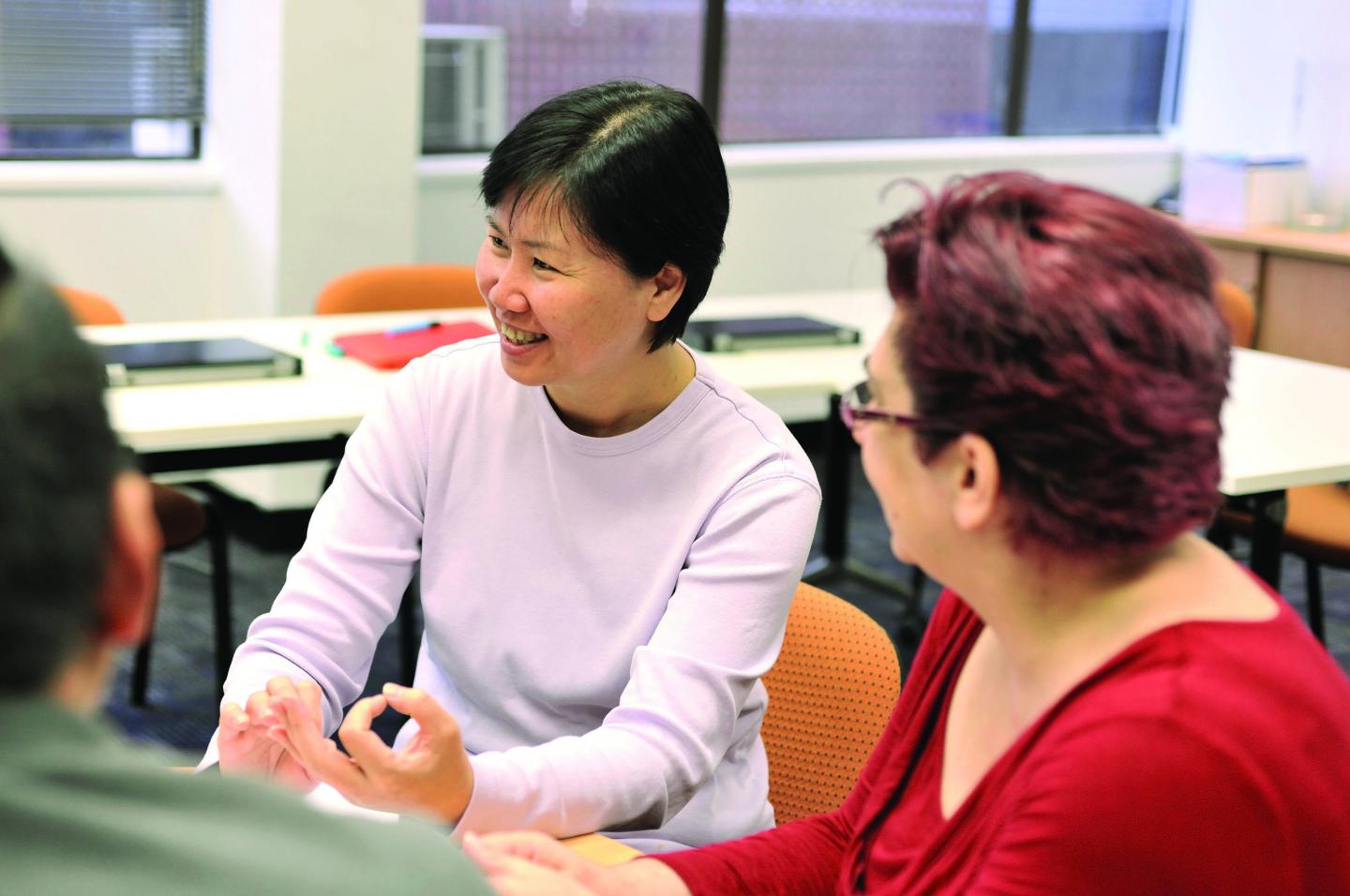
Credit: Wellways Australia
In a world first, La Trobe University research has shown how peer-led support programs for family and friends who provide regular support to an adult diagnosed with a mental health condition can significantly improve carer well-being.
Family Education Programs (FEPs) – led by trained individuals with their own personal experience of caring for someone with mental health issues – provide education and support for groups of carers.
Over a period of seven years, researchers surveyed 1,016 carers enrolled in 207 FEP courses operated nationally by Wellways Australia.
Lead researcher, La Trobe Associate Professor John Farhall, said the study gives greater confidence to health professionals and funders – as well as to potential participants – that FEPs can be used as a critical first step in reducing carer burden.
“Until now, very little research has been done on how these programs work,” Associate Professor Farhall said.
“The results show that the key ingredients of the program – increased knowledge and peer support – were associated with helpful changes reported by carers, including improved communication with the person they were caring for.
“Importantly, it was the degree of peer support that explained reductions in caregivers’ overall distress.”
When carers were surveyed at the completion of the eight-week program, researchers found:
- – Mental health knowledge in carers increased by 16.6 per cent
– Communication between carers and family members improved by 11.7 per cent
– Psychological distress in carers decreased by 8.6 per cent
– Carer self-blame decreased by 5.7 per cent
– Positive feelings between carers and family members increased by 7.6 per cent
– Relationship quality between carers and family members increased by 5.3 per cent
– Carer’s stigmatising attitudes toward mental health conditions decreased by 4 per cent
“It’s important to note that improvements reported at the end of the main program had been maintained when we followed up with carers 10 months later,” Associate Professor Farhall said.
“Peer-led courses such as these can help unpaid caregiving remain rewarding and effective for both the carer and their loved one.”
Emma Constantine, research co-author and General Manager of peer education programs at Wellways Australia, said that the findings strengthen the increasing evidence base for peer support.
“These programs build resilience for carers and improve outcomes for the whole family – peer education needs to be part of the standard range of supports available in our mental health and disability system,” Ms Constantine said.
###
The research has been published in the journal Psychological Medicine (Cambridge University Press).
PHOTO: Wellways Australia
Media contact: Dragana Mrkaja – 0447 508 171 – [email protected]
Media Contact
Dragana Mrkaja
[email protected]
Original Source
https:/
Related Journal Article
http://dx.



